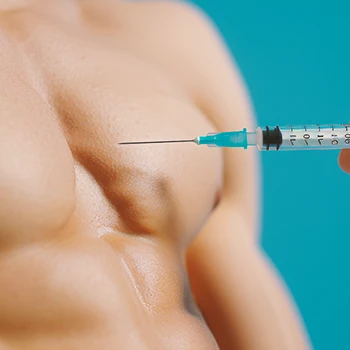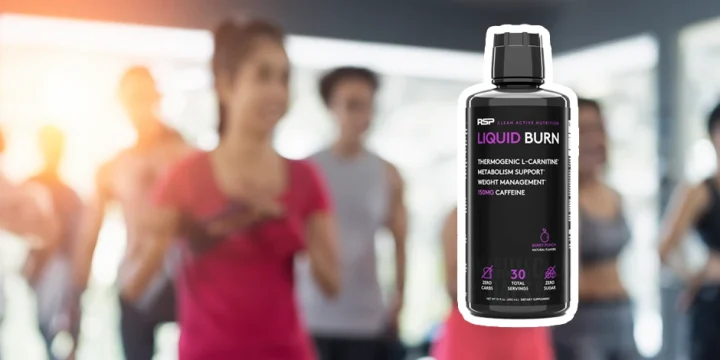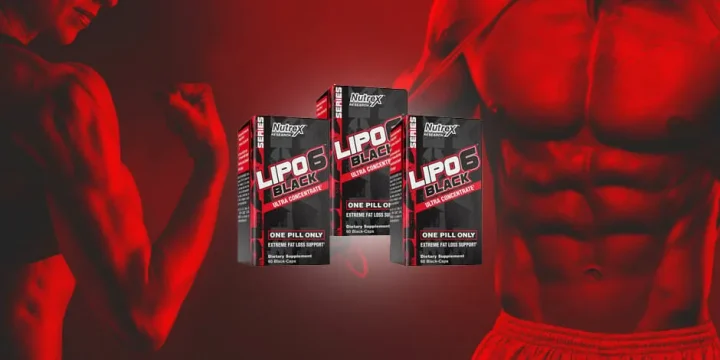Some of my fitness clients participate in competitions outside the gym and want to make sure whatever they put in their bodies isn’t going to get them banned.
Many of them use fat burners for cutting phases before they compete, but they often check in with me to ask if “fat burner XYZ” is natty.
So, I got together with our dietician to closely examine the most common ingredients in these supplements and whether sports federations allow them or not.
Read on to find out if fat burners meet the definition of natty.
Quick Summary
- Fat burners are considered 'natty' (natural) in the context of bodybuilding.
- Fat burners typically contain natural ingredients like green tea extract and soluble fiber, which are not classified as banned substances in natural bodybuilding.
- Some governing bodies in sports, such as the World Anti-Doping Agency and the International Olympic Committee, do not classify fat burners as banned substances.
- In my view, while fat burners may be composed of natural ingredients, their concentrated forms and potential side effects suggest a departure from the essence of truly natural fitness practices.
Are All Fat Burners Natty?

I understand that fat burners are considered natural in the context of natural bodybuilding competitions. This is a key point for those who aim to maintain a natural approach in their fitness journey.
Nevertheless, it's important to acknowledge that a minority within the bodybuilding community holds the view that the use of any supplements deviates from a truly natural regimen.
Now, let's delve deeper into the concept of being natural, or 'natty', in the fitness and bodybuilding world.
What Is Natty?
Natty is a slang term used in bodybuilding to describe something or someone as natural, as in not using banned substances like anabolic steroids or other performance-enhancing drugs (PEDs).
Most people generally accept the previous statement as an accurate definition of natty, but as with anything, there are differing opinions.
Some people in the bodybuilding world say that to be natty, you must not use a fat burner, pre-workout, or any other supplement.
Let’s think about that for a moment.
Many supplements contain natural ingredients, vitamins, minerals, and amino acids that people naturally get through their diets by eating fish, red meat, fruits, and vegetables.
So, is something unnatural (unnatty) if you can consume it through food? In my opinion, no.
Are Fat Burners Considered Steroids?

I often clarify to my clients that fat burners are not steroids. In the bodybuilding world, when we talk about 'steroids', we're usually referring to anabolic steroids such as Dianabol, Anadrol, Winstrol, and Deca-Durabolin, which are forms of synthetic testosterone
However, fat burners are entirely different; they're natural formulas designed to enhance fat loss by increasing energy, stimulating body heat, and accelerating your metabolism.
Common ingredients in these supplements to promote fat burning are:
- Caffeine
- Green tea extract
- Carnitine
- Yohimbe
- Soluble fiber like glucomannan
- B vitamins
- Capsicum
- Green coffee
“Green tea extract is simply concentrated green tea. It contains epigallocatechin gallate (EGCG) and caffeine, which can help you burn fat through thermogenesis.”
- Adrienne Seitz, MS, RD, LDN
Are Fat-burning Supplements Drugs?
Fat-burning supplements are generally not considered to be drugs, but others may view the definition found on the National Cancer Institute website as relevant to supplements [1].
Here it is:
Drug: Any substance (other than food) that is used to prevent, diagnose, treat, or relieve symptoms of a disease or abnormal condition.
Drugs can also affect how the brain and the rest of the system work and cause changes in mood, awareness, thoughts, feelings, or behavior.
Some types of drugs, such as opioids, may be abused or lead to addiction.
It boils down to the ingredients found in fat burners being easily obtained through diet, making the product natural and not a drug like narcotics or prescription medications.
Are Fat-burning Supplements Banned Substances?
Fat-burning supplements are not banned substances by some of the largest governing bodies in sports:
- World Anti-Doping Agency (WADA)
- International Olympic Committee (IOC)
- NCAA
- World Natural Bodybuilding Federation (WNBF)
However, according to the National Institute of Health, some fat burners have been associated with severe toxicities and hepatotoxicity, causing fulminant hepatic failure in young, healthy individuals [2].
Side Effects of Fat Burners
There are numerous side effects of fat burners, including death, which have been reported by users. The side effects vary in severity but include:
- Skin rashes
- Irregular heartbeat
- Nausea
- Vomiting
- Agitation
- Insomnia
- Diarrhea
- Headache
- Fatigue
- Migraines
- Liver toxicity
Examples of Unnatty Bodybuilding Substances

Now that we've defined what's considered natural or 'natty' in bodybuilding, let's briefly explore some common substances in the bodybuilding realm that are considered unnatural or 'unnatty'.
Growth Hormones
Hormones like HGH (Human Growth Hormone), insulin, and IGF-1 (Insulin Growth Factor-1) are banned substances by sports governing bodies, including WNBF.
According to WebMed, users misuse growth hormones in tandem with steroids to build muscle and enhance athletic performance [3].
Hormone Precursors
According to Mayo Clinic, hormone precursors convert to other hormones in the body, including testosterone. A common one is Dehydroepiandrosterone (DHEA) [4].
DHEA is available in synthetic form and is used to enhance athletic performance.
The WNBF bans hormone precursors.
Anabolic Steroids
When people think of banned substances, steroids are probably the first to come to mind. Anabolic-androgenic steroids (AAS) are synthetic versions of testosterone.
When misused to enhance athletic performance, users take steroids at 10 to 100 times the amount prescribed for valid medical purposes. Anabolic steroids are illegal without a prescription, and all sports organizations I know of ban them.
Related Article: Are Fat Burners Dangerous to Health
FAQs
Can You Take Fat-Burning Supplements Every Day?
You can take fat-burning supplements every day for a brief window of about four to six weeks. The manufacturers design these supplements for short-term use to boost fat-burning processes when needed.
Do Bodybuilders Take Fat Burners?
Many bodybuilders take fat burners because they contribute to weight loss and muscle definition. Fat burners are one of the most popular supplements among bodybuilders because they contain all-natural ingredients and can be used during competition.
Can Fat Burners Cause Hair Loss?
Yes, fat burners might cause hair thinning or hair loss by increasing cortisol levels, which can lead to anxiety and potentially trigger hair loss, or through weight loss that results from poor nutrition. Maintaining a healthy diet is crucial to prevent hair loss while using fat burners.
References:
- https://www.cancer.gov/publications/dictionaries/cancer-terms/def/drug
- https://pubmed.ncbi.nlm.nih.gov/21499580/
- https://www.webmd.com/fitness-exercise/human-growth-hormone-hgh
- https://www.mayoclinic.org/drugs-supplements-dhea/art-20364199
About The Author
You May Also Like







